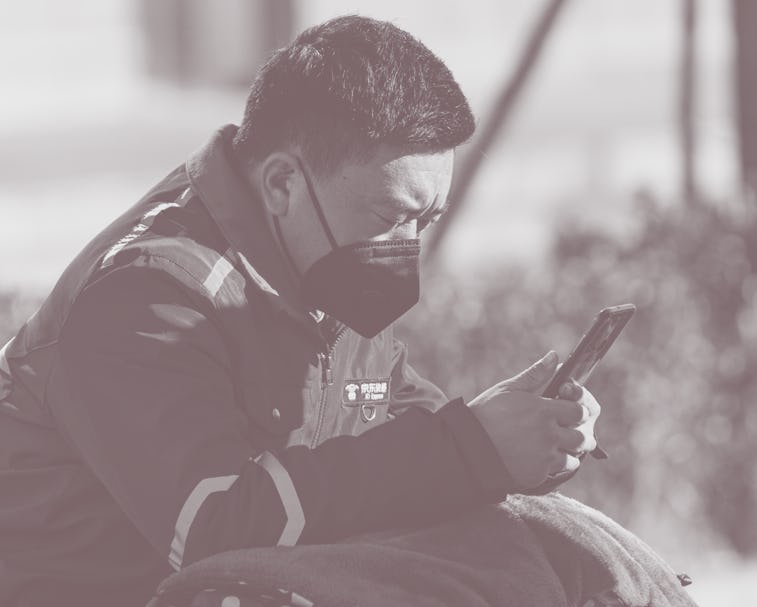Coronavirus
China launches an app for residents to assess their risk of contracting coronavirus
The app operates using the country’s massive surveillance system.

Living in a constant state of surveillance occasionally has its perks. China has used its wealth of surveillance knowledge to create an app that will help citizens check their level of risk for catching the coronavirus. The app uses networks of “close contact” to identify whether or not a user is at risk.
While this tool could assist in curbing the spread of the virus, it also carries with it the potential of scaring users into staying home when they’re not sick at all.
Easy signup for residents — When signing up for access, users are prompted to enter a phone number, their full name, and an ID number. That ID number can then be used to check if the user has come in “close contact” with a person infected by or suspected to have contracted the coronavirus. The app defines “close contact” as sharing close quarters: people who work together, travel together, or live together, for example.
Surveillance for good? — The app is only able to synthesize this information because the Chinese government uses extreme levels of surveillance to keep track of its citizens. And for many people who live in China, using this data for the app will not be seen as an invasion of privacy.
Piper Carolyn Bigg, a Hong Kong-based technology lawyer, told the BBC: “From a Chinese perspective this is a really useful service for people... It’s a really powerful tool that shows the power of data being used for good.
Beware of cyberchondria — The close contact app brings with it the danger of cyberchondria — wherein people self-diagnose themselves without much evidence or doctor consultation. The app instructs users who may have been in close contact with an infected person to stay in their house and contact medical authorities. Being close to an infected person by no means guarantees you’ll contract the coronavirus — but the app might just scare users into thinking it does.
Surveillance here has the ability to do public good, but even so it’s important to be wary of technology diagnosing health issues.